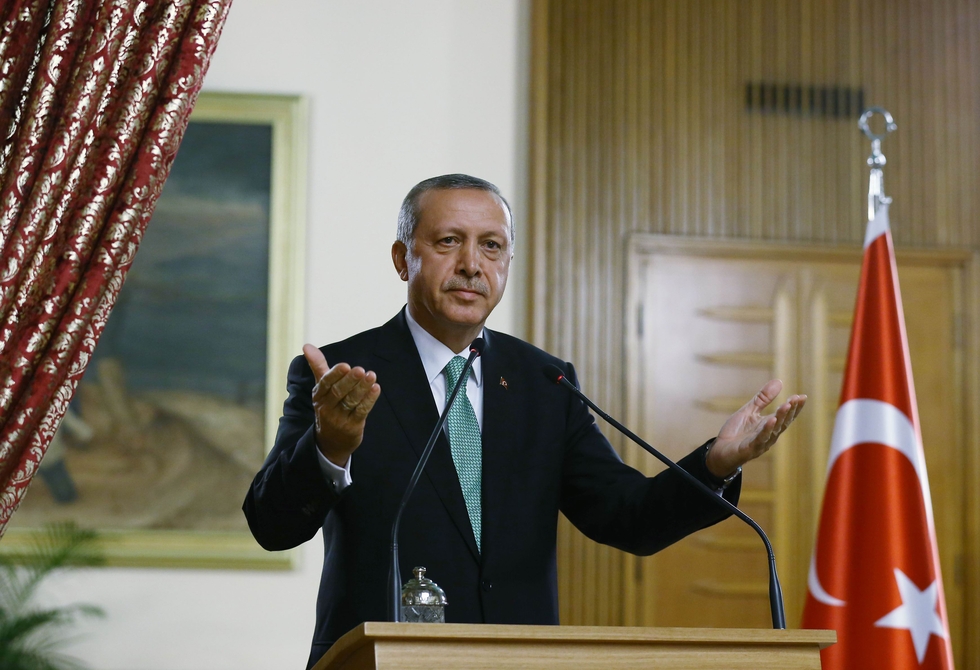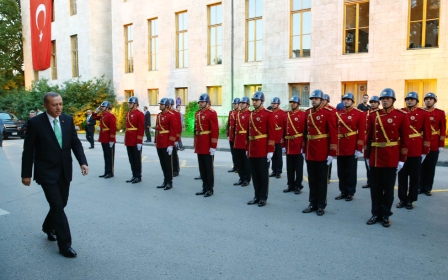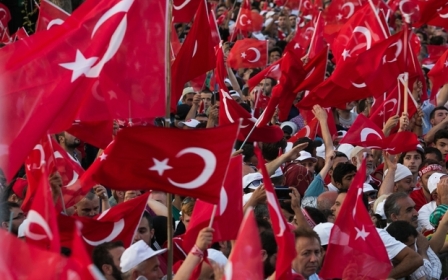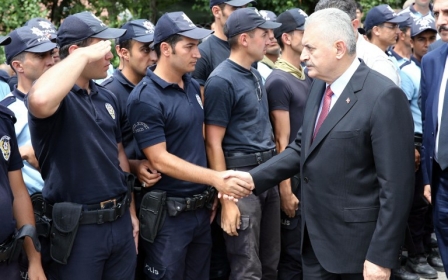Erdogan hits out at EU's 'biased' attitude towards Turkey as 1,200 soldiers freed

Turkish President Recep Tayyip Erdogan has hit out at the European Union for its “prejudiced” attitude to Turkey in the wake of last week’s coup attempt.
"They are making statements that are contradictory. They are biased, they are prejudiced and will continue to act in this prejudiced manner towards Turkey," Erdogan told France 24 television in an interview on Saturday.
EU officials have warned that Turkey’s long-delayed bid to join the union could be under threat if the country makes good on its threat to reintroduce the death penalty, which is outlawed across Europe.
Brussels has also expressed concern over the imposition of a state of emergency in the wake of the coup bid, but Ankara argues that it is no different to similar measures taken by France last year.
"For the past 53 years Europe has been making us wait [to join the union]," he said.
"We are in a better condition than countries that have become members ... No [prospective EU member] has had to suffer like we have had to suffer."
On Wednesday, Turkish presidential spokesperson Ibrahim Kalin claimed on Twitter that EU countries would have “supported” the coup had it been successful:
Turkey's membership bid dates back to 1963, with a formal application made in 1987 and negotiations starting in 2005.
The criticism by Erdogan came as Turkey on Saturday freed 1,200 soldiers detained after the failed military coup in its first major release of suspects amid global criticism of the crackdown.
Those released were privates, Ankara's chief prosecutor Harun Kodalak was quoted as saying by Turkish media, adding that the authorities were seeking to swiftly sort out those who had fired on people from those who had not.
There have been fears that many of the over 7,400 soldiers detained in the wake of the coup were young conscripts who had no knowledge of what was going on.
"We are committed to moving forward with the legal process diligently," said a Turkish official, confirming the prosecutor's comments on the release.
"No innocent person shall be punished. And the courts will make those decisions."
According to the authorities, 10,410 people have been detained - mainly soldiers, including 283 Presidential Guard officers, but also police, judges and civil servants. Of these, 4,500 have been formally placed under arrest.
The Turkish government has also cancelled more than 10,000 passports, mainly of state officials, "due to flight risk with the holders either in custody or on the run".
Aside from the detentions, more than 50,000 other civil servants, including those working in the family and sports ministries, have been sacked or suspended, in a purge whose speed and scale suggested to many observers that their names had already been on target lists.
The government also plans more far-reaching institutional changes, said the interior minister, Efkan Ala. Crucially, he said, control of the gendarmerie, in charge of domestic security, will be wrested from the army and placed under the remit of the interior ministry.
Middle East Eye propose une couverture et une analyse indépendantes et incomparables du Moyen-Orient, de l’Afrique du Nord et d’autres régions du monde. Pour en savoir plus sur la reprise de ce contenu et les frais qui s’appliquent, veuillez remplir ce formulaire [en anglais]. Pour en savoir plus sur MEE, cliquez ici [en anglais].




